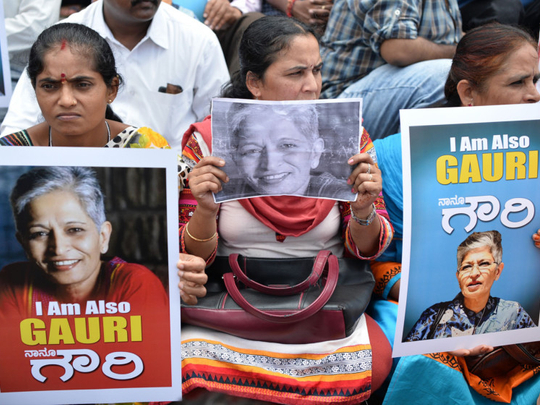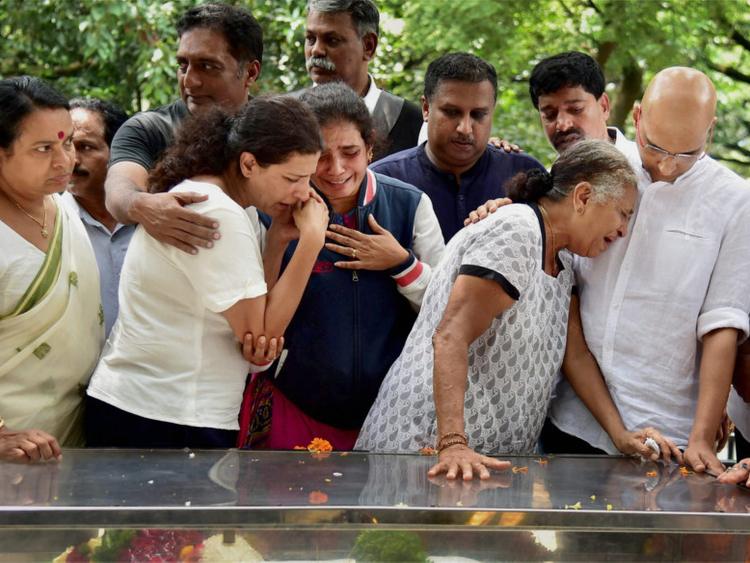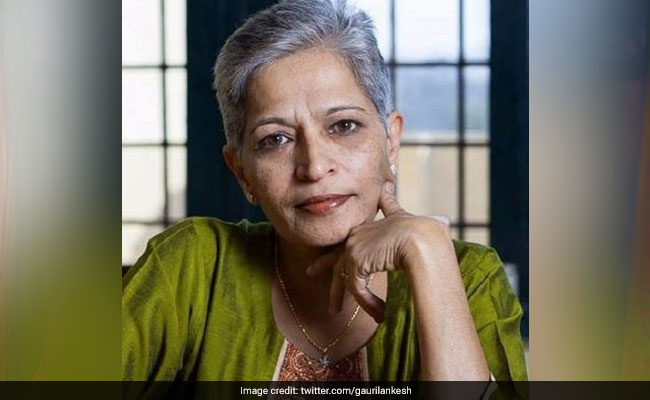
New Delhi: The cold-blooded killing of senior Indian journalist Gauri Lankesh triggered outrage and widespread protests across the country yesterday, with many fearing that the perpetrators of the attack, like so many others before, would get away with impunity.
Lankesh was shot seven times outside her home the southern Indian city of Bengaluru on Tuesday night, the latest in a string of deadly attacks targeting journalists, scholars and outspoken critics of religious superstition and hardline Hindu politics in India. The killers fled and no arrests have yet been made.
Thousands of people bade tearful farewell to her last evening as she was laid to rest with full state honours. Weeping, they filed slowly past her glass-covered coffin. Some carried placards that read “I am also Gauri.”
ALSO READ:
Editorial: Woman journalist’s killing shocks India
Slain journalist Gauri Lankesh adored Kerala, hoped to eat beef
'Fearless' Indian journalist shot dead
Mumbai Press Club condemns killing of Bengaluru journalist
Others held banners that said: “You can kill the person but not her ideas.”
Assassination
The police gave her a gun-salute, and she was buried at a cemetery in central Bengaluru.
A sombre Karnataka Chief Minister Siddaramaiah called the murder an “assassination of democracy.”
A special investigation team (SIT) headed by an Inspector-General probe her killing, he said.
Earlier, Bengaluru’s Deputy Commissioner of Police (West) M.N. Anucheth said: “Three special teams were set up to crack the case. We are tracking the movement of people and vehicles at check posts and inter-state borders.”
Attack on free speech
Lankesh, 55, was the outspoken editor of the independent Kannada-language magazine Lankesh Patrike, and a target of right-wing trolling on social media. She had complained of facing “rabid hate” that made her fear for free speech in India.
In November 2016 she was found guilty of defaming lawmaker Prahlad Joshi from the ruling Bharatiya Janata Party (BJP) and sentenced to six months in jail. She said the case was politically motivated and vowed to challenge it in a higher court. She was out on bail.
As news of her murder spread, spontaneous rallies erupted in cities and towns across India yesterday, with protesters demanding the government do more to protect free speech.
“Grace. Integrity. Courage. The work will continue,” her ex-husband and senior journalist Chidanand Rajghatta wrote in a Facebook tribute.
Lankesh’s brother Indrajit demanded that her murder be investigated by the Central Bureau of Investigation (CBI) without political interference.
He was hopeful the culprits will be traced soon with the help of CCTV footage.
The Committee to Protect Journalists called on India to bring to justice her killers. Out of 27 cases of journalists who were killed for their work in India since 1992, none have led to any convictions, the group noted.
The recent growth of social media has made threats even more common. Writers who criticise the government have become the target of troll armies. Women journalists, in particular, are frequently threatened with rape and acid attacks.
- With inputs from AP & Reuters














